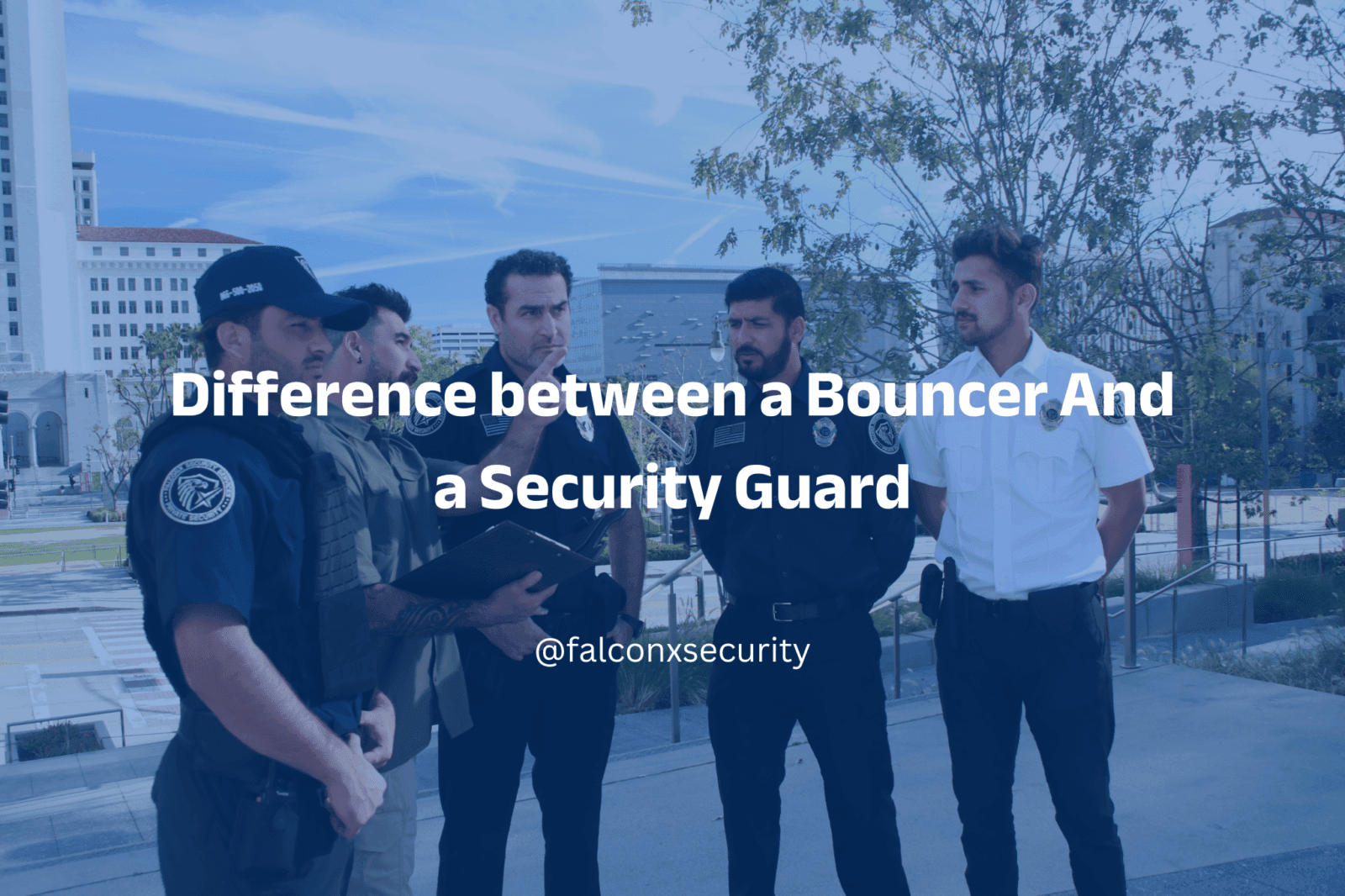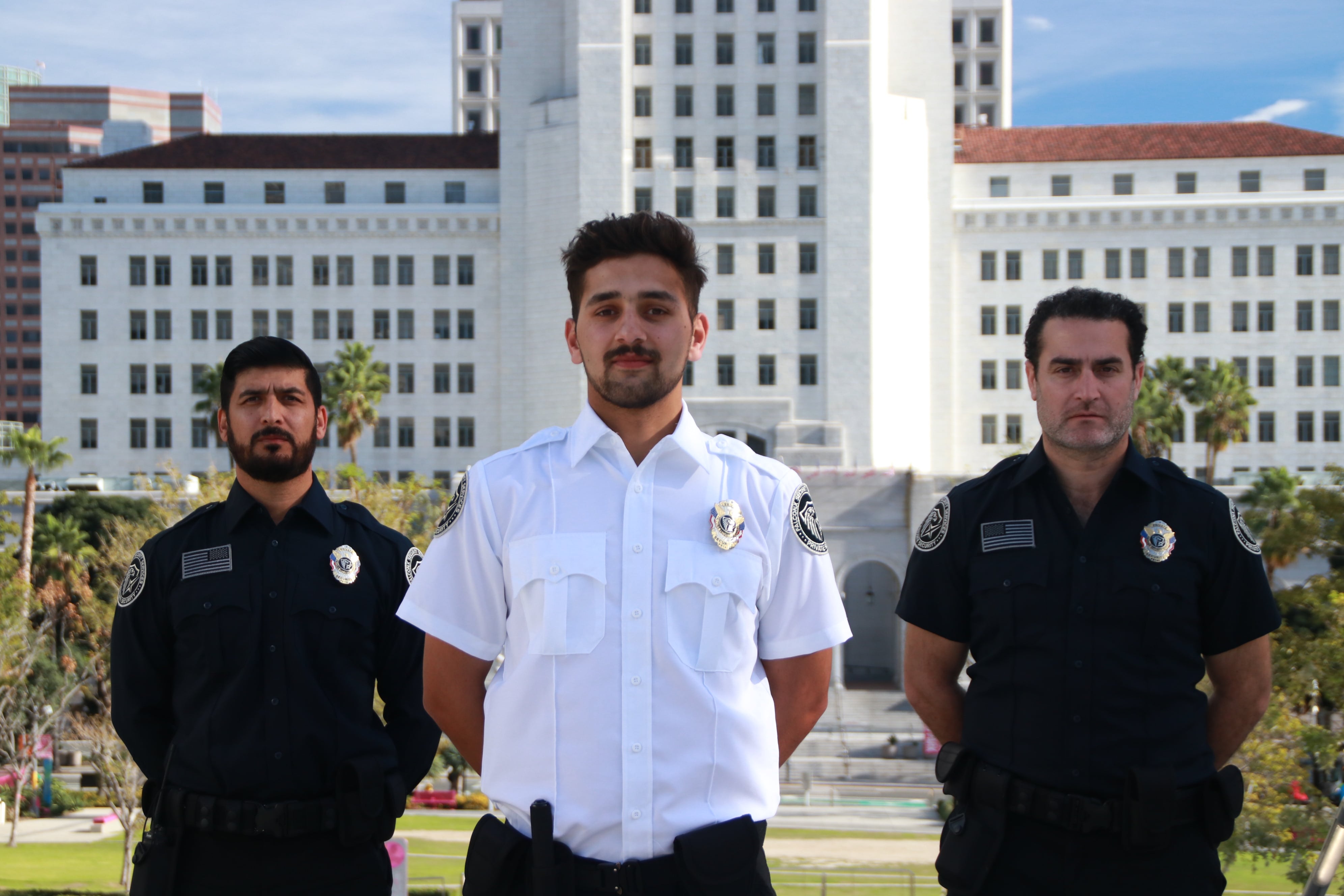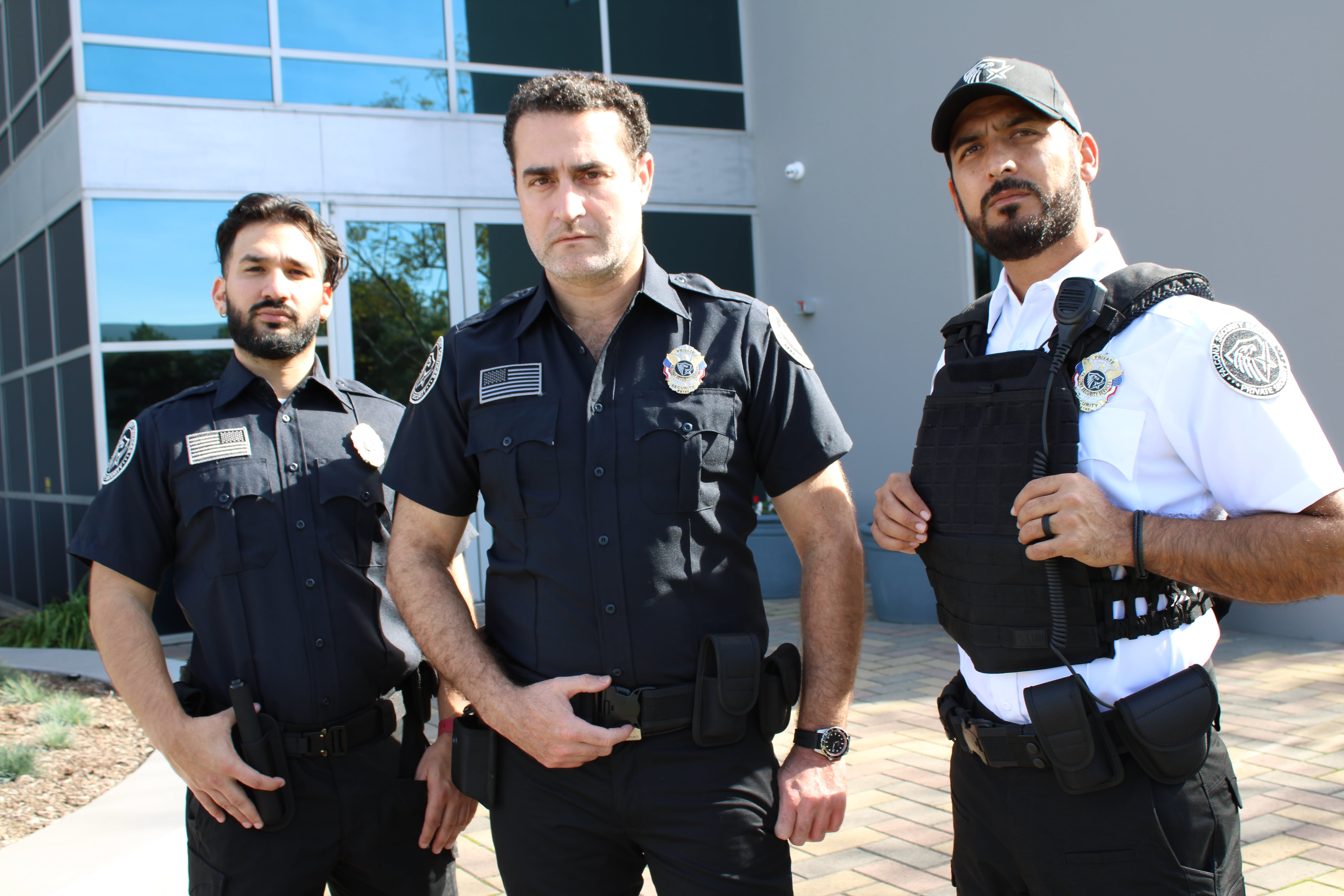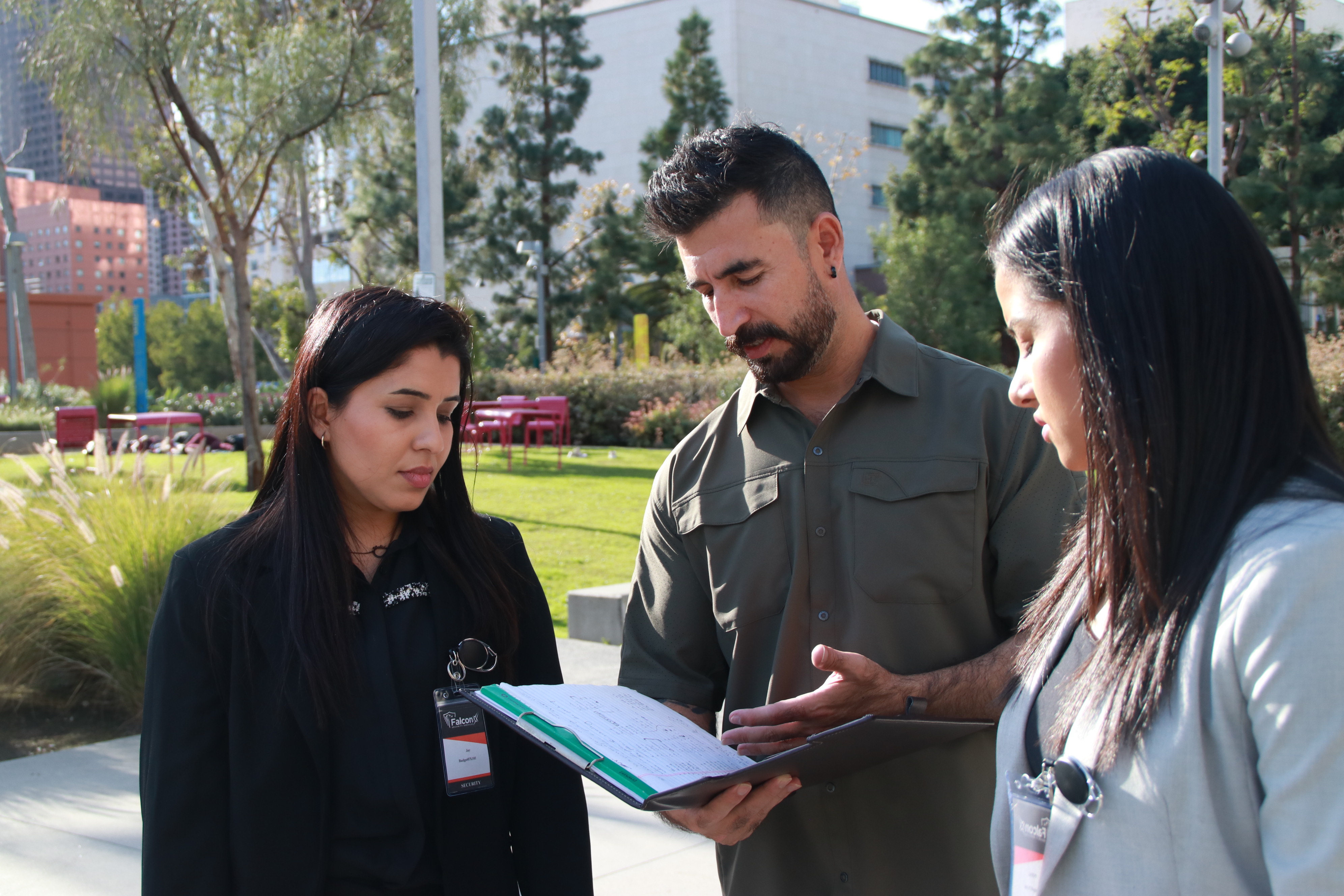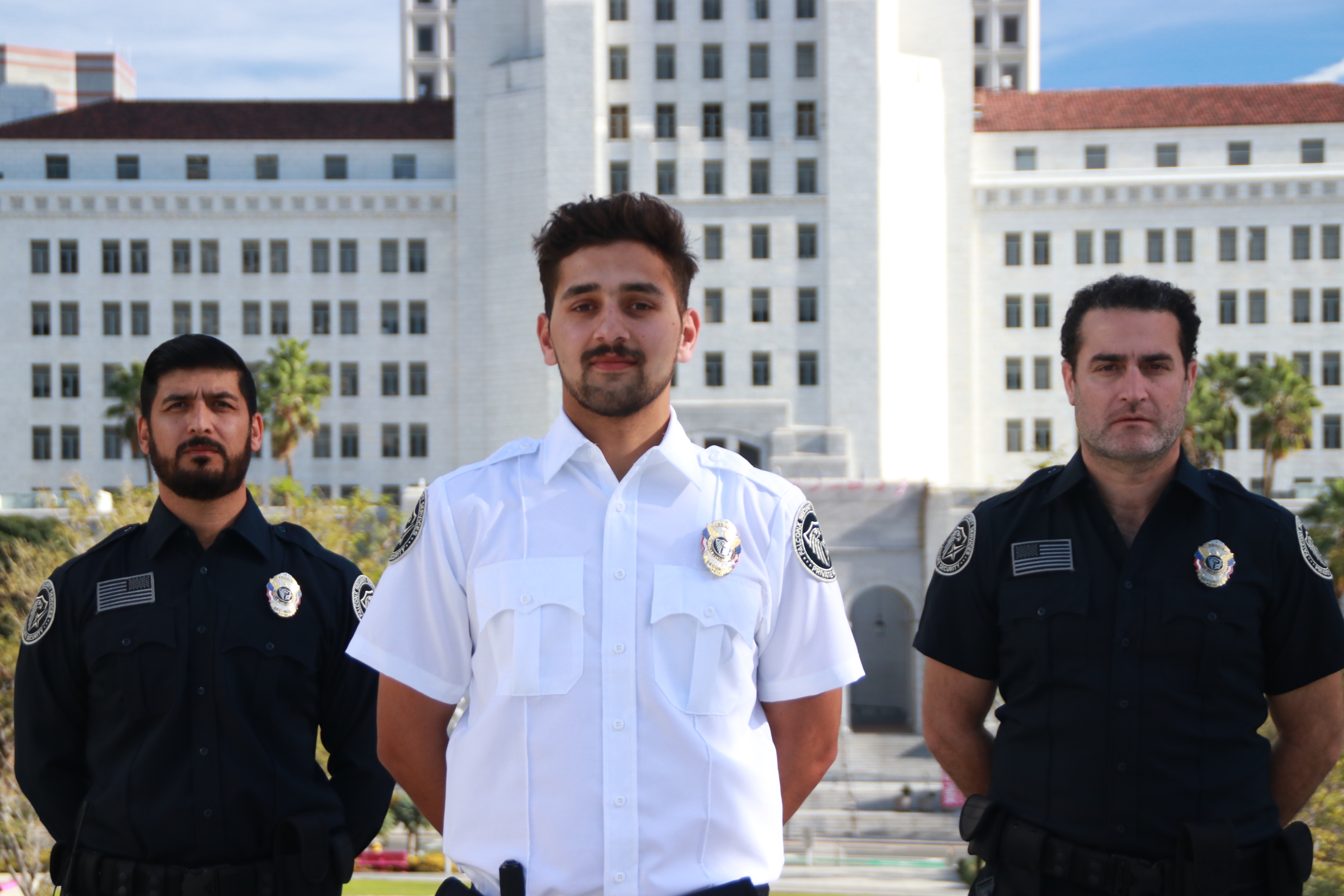A bouncer primarily manages entry to venues, while a security guard focuses on overall protection. Bouncers enforce rules and handle unruly guests, whereas security guards monitor for potential threats and maintain safety.
Both roles require physical presence and quick decision-making skills. Customers expect a safe environment, making bouncers and security guards crucial in various settings such as bars, clubs, events, and businesses. Understanding the distinctions between these positions ensures appropriate staffing for specific security needs.
It’s essential to recognize the unique responsibilities each role entails, as both bouncers and security guards play vital roles in maintaining order and security in different settings.
Introduction To Security Roles
Security roles are often confused, especially when it comes to bouncers and security guards. However, the main difference lies in the scope of their work and the kind of training they receive. Bouncers are trained to handle crowd control and troubleshoot incidents in bars and clubs, while security guards are responsible for protecting property and people in various settings.
The Basic Functions
Understanding the roles and responsibilities of security personnel is crucial for maintaining safety and order in various establishments. Two commonly misunderstood security roles are bouncers and security guards. While they may seem similar on the surface, there are distinct differences between the two. Let’s explore their basic functions:
A bouncer primarily works in the entertainment industry, such as nightclubs, bars, and concert venues. Their main responsibility is to maintain order and security within the premises. They handle crowd control, check IDs, and ensure that patrons follow the establishment’s rules and regulations. Additionally, bouncers may intervene in conflicts or altercations to prevent escalation and ensure the safety of staff and customers.
On the other hand, a security guard’s role extends beyond the entertainment sector. They are employed in a variety of settings, including office buildings, hospitals, shopping malls, and residential complexes. Security guards are responsible for protecting people, property, and assets. They conduct regular patrols, monitor surveillance systems, and enforce safety procedures. In emergencies, they may be required to respond promptly and take appropriate action to mitigate risks and maintain a safe environment.
Common Misconceptions
Despite the clear distinctions between bouncers and security guards, there are common misconceptions that often arise. Let’s address these misconceptions:
- Bouncers are just muscle-bound individuals: While bouncers do need physical strength to handle potential conflicts, their role goes beyond physicality. They are trained to defuse tense situations, communicate effectively, and ensure the overall safety of the establishment.
- Security guards are untrained: This is far from the truth. Security guards undergo extensive training to handle various situations, including emergency response, first aid, and conflict resolution. They are equipped with the necessary skills and knowledge to handle security-related tasks effectively.
- Bouncers and security guards have the same authority: Although both roles involve maintaining security, the level of authority and jurisdiction can differ. Security guards often have legal authority to detain individuals, whereas bouncers typically rely on persuasion and assistance from law enforcement if needed.
Understanding the differences between bouncers and security guards is essential for employers and individuals seeking security services. By recognizing their unique functions and dispelling common misconceptions, we can ensure a safer and more secure environment for everyone.
The Role Of A Bouncer
A bouncer plays a crucial role in maintaining safety and order in venues such as nightclubs, bars, and other entertainment establishments. Their primary responsibility is to ensure the security and well-being of patrons and staff, while also upholding the establishment’s policies and regulations.
Primary Responsibilities
Bouncers are primarily responsible for maintaining a safe and secure environment within the establishment. This includes monitoring the crowd for any signs of disturbance or potential conflict, diffusing tense situations, and escorting disruptive individuals off the premises when necessary. They also check the identification and ensure the proper entry of patrons, maintaining order in queues and controlling the capacity of the venue.
Skills And Qualifications
Effective communication and conflict resolution skills are essential for bouncers, as they often need to interact with patrons in high-pressure situations. Physical strength and the ability to remain calm under pressure are also important. Many establishments require bouncers to have first aid and CPR certification, as well as training in crowd control and security protocols.
The Role Of A Security Guard
Security guards are trained professionals responsible for maintaining safety and security at various establishments. Unlike bouncers, security guards focus on preventing and handling security threats through surveillance and communication, ensuring a secure environment for patrons and property.
When it comes to security personnel, people often use the terms bouncer and security guard interchangeably. However, the two roles are quite different in terms of their responsibilities, training, and work environment. In this blog post, we will explore the differences between a bouncer and a security guard, with a particular focus on the role of a security guard.
Core Duties
The primary role of a security guard is to maintain a safe and secure environment for people and property. This involves a range of duties, including:
- Patrolling and monitoring premises to prevent theft, violence, or other criminal activity
- Checking identification of individuals entering the premises
- Responding to alarms and emergency situations
- Escorting people and goods to and from the premises
- Completing incident reports and maintaining records of security-related activities
Necessary Training
To perform these duties effectively, security guards require specialized training. The exact requirements vary depending on the jurisdiction and the type of security work involved. However, some of the common training elements include:
| Training Element | Description |
|---|---|
| Legal and ethical issues | Security guards need to be aware of the laws and regulations that govern their work, as well as the ethical considerations involved in protecting people and property. |
| Security procedures and protocols | Security guards need to be familiar with the specific procedures and protocols of the organization they work for, such as emergency response plans and access control measures. |
| First aid and CPR | Security guards often need to provide basic first aid and CPR in emergency situations. |
| Self-defense and restraint techniques | Security guards need to be able to defend themselves and others if necessary, and to use appropriate restraint techniques to control aggressive or violent individuals. |
| Communication skills | Security guards need to be able to communicate effectively with colleagues, clients, and members of the public. |
In addition to these training elements, security guards may also require specialized training in areas such as crowd control, surveillance, or firearms handling, depending on the specific nature of their work. In conclusion, the role of a security guard is an important one that involves a range of duties and requires specialized training. While the term “bouncer” is often used to describe security personnel in certain settings, it is important to recognize the distinct differences between these roles.
Key Differences Highlighted
Bouncers and security guards have distinct roles. Bouncers primarily handle crowd control and maintain order in entertainment venues, while security guards focus on protecting property and people in various settings.
Work Environment
The work environment is one of the key differences between a bouncer and a security guard. Bouncers primarily work in bars, nightclubs, and other entertainment venues where alcohol is served. They are responsible for maintaining order, checking IDs, and handling any unruly or disruptive behavior. On the other hand, security guards can be found in a variety of settings such as malls, office buildings, hospitals, and residential complexes. They are tasked with protecting property, monitoring surveillance systems, and responding to emergencies. While both roles involve ensuring safety, the work environments of bouncers and security guards differ significantly.
Nature Of Duties
The nature of duties performed by bouncers and security guards is another key distinction between the two roles. Bouncers focus primarily on crowd control and maintaining a safe environment within their assigned establishment. They may need to break up fights, remove individuals who are causing trouble, or escort disruptive patrons off the premises. Security guards, on the other hand, have a broader range of responsibilities. They may be required to conduct regular patrols, check for unauthorized access, and handle potential security threats. Additionally, security guards are often trained to respond to medical emergencies and provide basic first aid when necessary. The nature of duties for bouncers and security guards may overlap in some instances, but their primary responsibilities differ based on the specific requirements of their roles. To summarize, the key differences between bouncers and security guards can be highlighted in terms of their work environment and the nature of their duties. Bouncers typically work in bars and nightclubs, focusing on maintaining order and handling unruly behavior, while security guards can be found in various settings, protecting property and responding to emergencies. Understanding these differences is crucial when considering the specific needs and requirements of security personnel for different establishments.
Similarities Worth Noting
Bouncers and security guards may seem similar, but there are notable differences between the two. While bouncers typically work in nightclubs and bars, security guards can be found in a variety of settings such as malls, hospitals, and corporate offices.
Both roles require physical strength and the ability to handle difficult situations, but security guards may also need to have knowledge of surveillance technology and emergency procedures.
Shared Objectives
Overlap In Skills
In the security industry, bouncers and security guards share common ground in their roles and responsibilities. Both have shared objectives and an overlap in skills that contribute to ensuring safety and order in various settings.
Shared Objectives
– Maintaining order and safety in the premises is a primary goal for both bouncers and security guards. – Preventing disturbances and addressing conflicts swiftly are key tasks they both handle. – Providing a visible security presence to deter potential troublemakers is crucial for both roles.
Overlap In Skills
– Effective communication skills are essential for bouncers and security guards to handle confrontations professionally. – Physical fitness is a requirement for both roles to respond quickly to emergencies. – Knowledge of legal regulations and protocols is necessary for both bouncers and security guards to operate within the law.
Legal And Ethical Considerations
Legal and ethical considerations play a vital role in determining the difference between bouncers and security guards. While both professions involve ensuring safety and maintaining order in public places, there are some key distinctions that set them apart.
Certification And Licenses
One of the primary differences between bouncers and security guards is the level of certification and licensing required for their respective roles. Security guards typically undergo extensive training and must obtain a license from the state in which they work. This license ensures that they have met certain minimum requirements for education and training and that they are qualified to perform the duties of a security guard.
Bouncers, on the other hand, are not typically required to have any specific certification or licensing. While some states may have specific requirements for bouncers, many do not. This lack of regulation can lead to issues with unqualified individuals working in the role of a bouncer, which can pose a risk to both patrons and the establishment.
Ethical Boundaries
Another important distinction between bouncers and security guards is the ethical boundaries that guide their behavior. Security guards are generally held to a higher standard of conduct than bouncers and are expected to act in a professional and unbiased manner at all times. They must be able to remain calm and composed in challenging situations and must be able to make sound decisions based on their training and experience.
Bouncers, on the other hand, are often hired for their physical presence and ability to handle difficult patrons. While they may also be expected to act professionally and maintain order, their primary role is to prevent violence and protect the establishment from harm. However, this can sometimes lead to situations where bouncers use excessive force or act in an unethical manner, which can result in legal and financial consequences for both the bouncer and the establishment.
Real-world Scenarios
Real-world scenarios often require the expertise of security personnel, but it’s essential to understand the differences between a bouncer and a security guard. Let’s delve into some case studies and testimonials to illustrate the distinctions in their roles and responsibilities.
Case Studies
In a nightclub setting, a bouncer is primarily responsible for maintaining order and ensuring the safety of patrons. One evening, a confrontation between two intoxicated individuals escalated into a physical altercation. The bouncer swiftly intervened, diffusing the situation and preventing further escalation.
Testimonials
One club owner expressed their gratitude for the bouncer’s quick and effective response, emphasizing the importance of their role in maintaining a safe and enjoyable environment for patrons.
Choosing The Right Career Path
Choosing the right career path can be a significant decision, especially when it comes to roles in security. Understanding the differences between a bouncer and a security guard is essential for individuals looking to pursue a career in this field. Assessing your skills and considering career advancement opportunities are crucial in making an informed choice.
Assessing Your Skills
Before choosing between becoming a bouncer or a security guard, it’s essential to assess your skills. Physical strength and conflict resolution abilities are crucial for a bouncer, as they are responsible for maintaining order and ensuring the safety of patrons in venues such as nightclubs and bars. On the other hand, a security guard requires vigilance, attention to detail, and the ability to remain calm under pressure to protect properties and assets.
Career Advancement Opportunities
When considering a career path, it’s important to evaluate the potential for career advancement. Both bouncers and security guards have opportunities to advance in their careers. Bouncers may progress to become head bouncers or security managers in larger venues, while security guards can advance to roles such as security supervisor or security director in various industries, including corporate security and event security.
Frequently Asked Questions
What Is Higher Than A Security Guard?
A security supervisor or security manager is a position higher than a security guard. They oversee and manage security operations.
Why Are Security Guards Called Bouncers?
Security guards are sometimes called bouncers due to their role in bouncing or ejecting unruly individuals from establishments. They are responsible for maintaining order and ensuring the safety of patrons.
What Is The Purpose Of A Bouncer?
A bouncer’s purpose is to maintain security and safety at venues by controlling entry, handling disturbances, and ensuring compliance with rules.
What Are The 3 Types Of Security Guard Force?
The three types of security guard force are unarmed, armed, and special police. These forces provide protection and surveillance for various locations. Unarmed guards focus on monitoring and reporting incidents, while armed guards carry firearms for added security. Special police have jurisdictional authority in specific areas.
Conclusion
In sum, while both bouncers and security guards share the goal of maintaining safety, their roles differ significantly. Bouncers focus on crowd management and customer service, whereas security guards prioritize protecting property and assets. Understanding these distinctions is crucial for businesses to effectively address their security needs.
